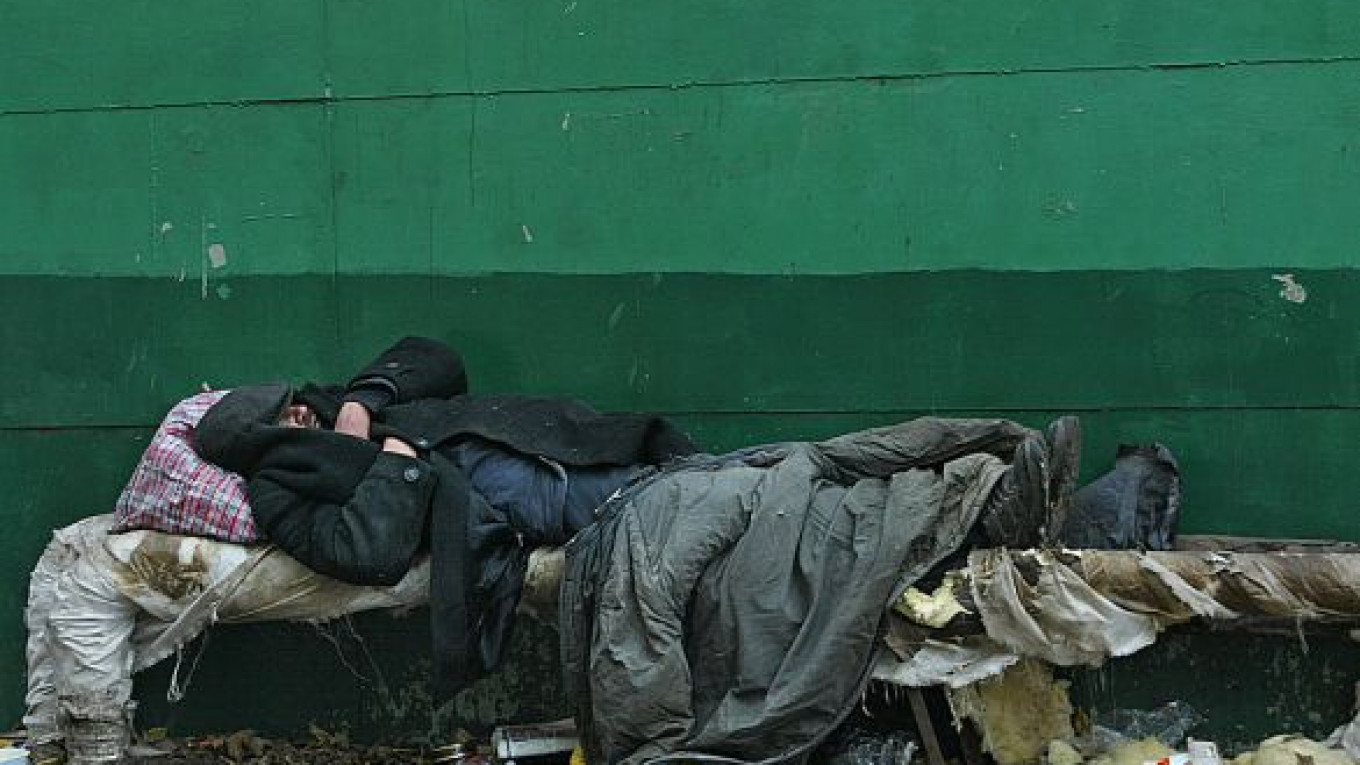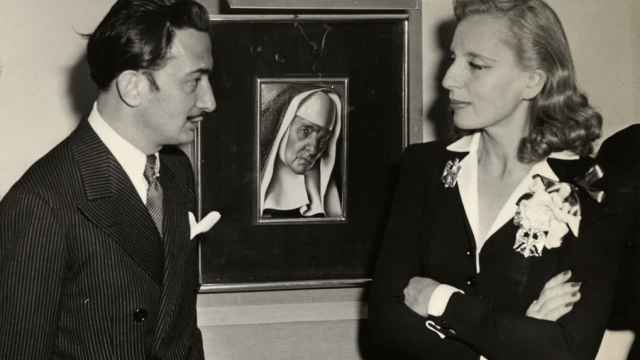Snow came down Tuesday, an unwelcome and unexpected April shower, the tail end of a harsh winter that has seemingly decided to never end — temperatures are predicted to go down to minus 7 degrees Celsius on Thursday night.
As every year, the least fortunate city inhabitants this winter have been the homeless, who have had to cope on the streets with a freeze that hit minus 28 degrees Celsius. Fifty homeless people in Moscow alone died of the cold, said Ilya Kuskov, manager of the Orthodox Church's homeless charity work.
The tough conditions saw the Orthodox Church launch a campaign earlier this year to find a spot to put up an inflatable heated tent that would provide a safe, warm place for the homeless to sleep at night.
"They have nowhere to sleep at night. The metros are closed," said charity worker Nikolai Monakhov, speaking on the church's Mercy Bus, which drives around Moscow every day providing food and medical help to the homeless. "They end up sleeping under underpasses, warm pipes, or close to them. But, of course, this isn't warm enough. Most of them experience problems with their legs, huge swellings that we try to treat with bandages."
The proposed shelter would be a one-stop place for the homeless to go to, providing not only a warm place to sleep at night, but food, clothes, medicine and emotional and psychological support. If it was successful, the tent could possibly stay up all year round.
The church has the funds needed to start and sustain the project — the problem is finding 30 square meters of free space in the city.
An unhelpful city government has thwarted its plans, and the church is appealing to the public for help in finding a spot for the tent so that it can be put up for next winter.
"There is a very bad attitude toward the homeless in our community. They don't understand that it is not these people's fault that they have ended up homeless; we all have the same problems. They are the same as us," Kuskov said of the public's attitude. "They think they smell, think they are alcoholics. So they don't want to set up the shelter near residencies, as it would cause public complaints and lower surrounding revenue. It's all about money."
The city said the tent will not solve the problem, pointing to spare places in their own homeless shelters, but the church says the homeless are reluctant to go to them because of a lack of care and because the shelters are supposed to send anyone registered outside of Moscow back to their home residencies.
"The problem is that Moscow is a dog-eat-dog world," said one homeless man in his 50s, wrapped up in a number of layers of clothes, who was receiving food from the Mercy Bus, "People don't want to help other people, and the power to change this is with the government."
The church has asked any member of the public with suggestions for where to pitch their tent to e-mail them mpcpb@yandex.ru or mpcpb@mail.ru. For more information about the church's charity work, see






